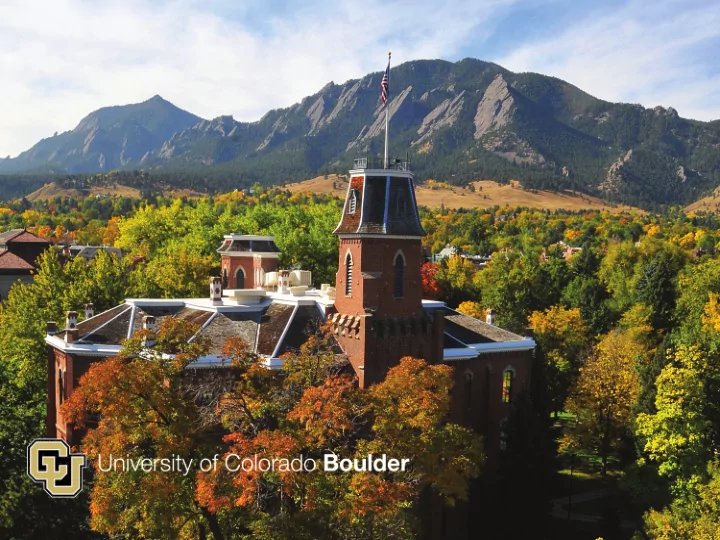

Mentoring Undergraduates Through Competition Does the Student Cluster Competition model work? November 18, 2015 SC15 – Austin, Texas Doug.Smith@lasp.Colorado.edu
University of Colorado Cluster Challenge Team • Established December 2006 • Competed in 6 SC competitions • Special Recognition SC08 • Highest Linpack winner SC09 • Competed in 4 ISC competitions • Grass roots organization/voluntary participation • Total number of students involved to date: 27 • Total number of majors involved: 9 • Computer Science • Astronomy • Electrical Engineering • Engineering Physics • Economics • Developmental Biology • Applied Mathematics • physics • Anthropology
University of Colorado Cluster Challenge Team Merits: • Hands on experience with new technology • Cross-over experience with many different courses and scientific disciplines • Exposure to industry experts, mentoring, and career opportunities • Significant extracurricular academic activity • Learning to work in a group as well as individually • Exposure to peers at other universities and from other countries • Exposure to academic publication process both in the research phase and the publication phase • Encourages creative thinking and brainstorming • Directly applicable work skills Limitations: • Time • Money • Equipment and facilities
‘Do "extracurricular" activities, such as the Student Cluster Competition, provide sufficient return on investment?’ Directly employed in HPC - 2 Former students working at Oakridge National Lab - 2 Former students working in Research Computing at University of Colorado - 2 Former students working in HPC at Intel - 1 Former student at Cognilytics/CenturyLink - 1 Former student at Google Students returning to SC as a part of their job post graduation = 5 Students currently in or finished graduate school in HPC related field = 5 100% graduation rate!
Sponsors of the University of Colorado Cluster Challenge Team
Recommend
More recommend